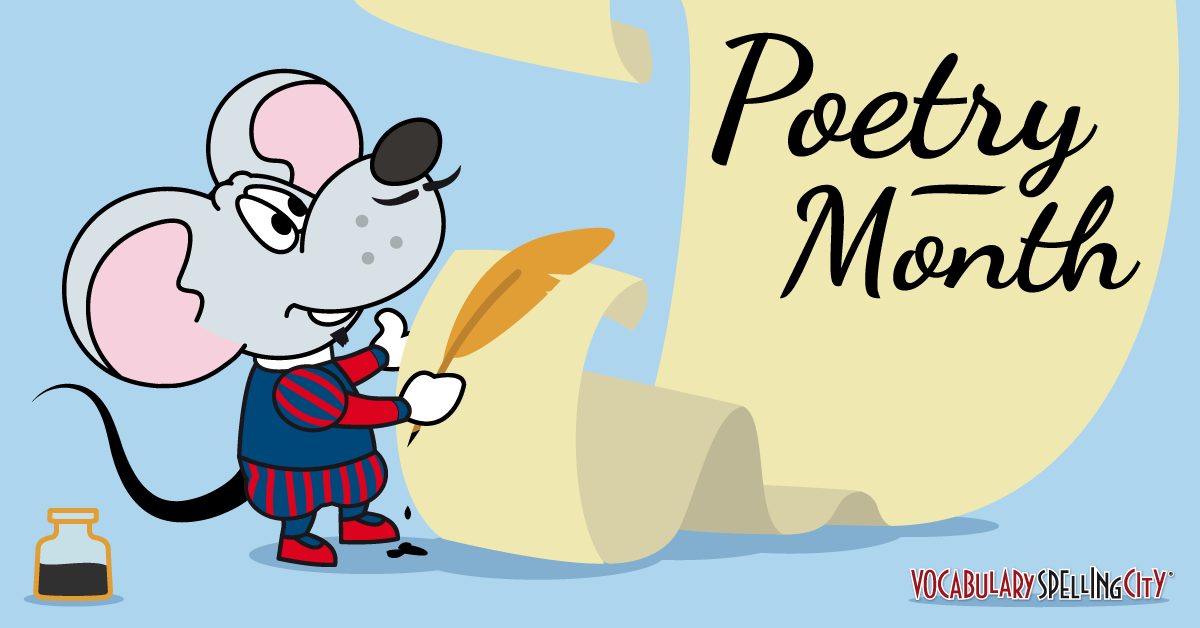- Teaching Resources
- WORD LISTS & LESSONS
- Reading Programs
- Grade Level Lists
- English/ Language Arts
- Figurative Language
- Grammar
- Spelling
- Vocabulary
- Literature
- Math
- Science
- Social Studies
- EDUCATIONAL TOPICS
- PRODUCT INFO
- General Info
- About WritingCity
- App
- Awards & Recognition
- Build Literacy Skills
- CODiE Award Finalist
- Conferences and Conventions
- Custom Sentences and Definitions
- Efficacy Study: Help Students Build Reading Comprehension
- Google Education App
- Google Single Sign-On
- Handwriting Worksheets
- Manage Student Data with Clever
- McREL Efficacy Study
- Online Learning Resources
- Parent Welcome Letters
- Personal Student Lists
- Phonics Games Build Literacy Skills
- Printables
- Review Lists
- SpellingCity/ NComputing
- Student Writing Practice
- Test Prep
- VocabularySpellingCity Acquires WriteSteps
- Webinars: Tim Rasinski
- White Paper on Effective Vocabulary Instruction
- Words Their Way White Paper
- Testimonials
- General Info
- TRAINING & HELP
- FUNDING
- WORD LISTS & LESSONS
National Poetry Month

National Poetry Month is recognized annually in the United States during the month of April. The literary celebration seeks to raise awareness and appreciation of poetry.
History of National Poetry Month
Inspired by the success of Black History Month and Women’s History Month, the Academy of American Poets sought to establish a month-long celebration to honor the art of poetry. In 1995, the Academy of American Poets enlisted the help of poets, publishers, booksellers, librarians, and teachers to organize the event. National Poetry Month was first observed in 1996.
Notable Poets
During National Poetry Month, we highlight the achievements of prominent poets throughout history. The following list features famous poets and their literary contributions.
- William Shakespeare – An English poet, playwright, and actor. William Shakespeare, often referred to as England’s national poet, is celebrated for transforming the English language. Shakespeare’s literary works consist of approximately 39 plays and 154 sonnets, including The Sonnets of Shakespeare.
- William Blake – A 19th-Century English poet, painter, and printmaker. William Blake was a prominent poet of the Romantic Age. Blake’s most famous poems include “The Tyger,” “The Lamb,” and “The Chimney Sweeper.”
- Walt Whitman – An American poet, essayist, and journalist. Walt Whitman is considered one of the most significant 19th-century American poets. Whitman’s poetry collection Leaves of Grass is regarded as a landmark in American literature.
- Emily Dickinson – A leading 19-Century American poet. Emily Dickinson lived much of her life in reclusive isolation. Most of Dickinson’s poems were published posthumously in the collection,The Poems of Emily Dickinson . Her work is characterized by its innovative form and syntax.
- Edgar Allan Poe – An American writer, poet, and literary critic. Edgar Allan Poe is most famous for his tales and poems of macabre and horror. Poe’s poem “The Raven“ is recognized as one of the best-known poems in American literature.
- Robert Frost – An American poet. Robert Frost was a four-time Pulitzer prize winner in poetry. Frost’s poetry incorporates American colloquial speech to depict rural New England life, such as in his works “Stopping by Woods on a Snowy Evening” and “The Road Not Taken.”
- William Butler Yeats – An Irish poet, dramatist, and prose writer. William Butler Yeats, or W.B. Yeats, was one of the foremost figures in 20th century literature. The Nobel Prize-winning poet penned The Tower and Words for Music Perhaps and Other Poems.
- Pablo Neruda – A Chilean poet and diplomat. Pablo Neruda was a Nobel Prize-winning poet who was acknowledged as “the greatest poet in the 20th century in any language.” One of Neruda’s most renowned works is Veinte poemas de amor y una canción desesperada (Twenty Love Poems and a Song of Despair).
- E.E. Cummings – An American poet, painter, essayist, author, and playwright. E.E. Cummings is best known for his innovative poetic form. Cumming’s work was characterized by unconventional punctuation and phrasing. His poetry collection includes Tulips and Chimneys and XLI Poems.
- Langston Hughes – An American poet, novelist, and playwright. Langston Hughes was one of the early innovators of jazz poetry during the Harlem Renaissance. Hughes popular poems include “Dreams” and “Harlem.”
- Shel Silverstein – An American poet, illustrator, songwriter, and author. Shel Silverstein is best known for his cartoons, songs, and children’s books. Silverstein’s poetry collections include A Light in the Attic and Where the Sidewalk Ends.
- Maya Angelou – An American poet, singer, and memoirist. Maya Angelou literary works explore the themes of economic and racial oppression. Angelou’s best known poems include “Still I Rise,” “Phenomenal Woman,” and “Caged Bird.”
National Poetry Month Resources
Celebrate National Poetry Month in your classroom with our teaching resources, including the glossary of poetic terms. Supplement a poetry lesson with varied word lists featuring poetic terms, prominent poets, and popular poems. Pair these, and other monthly holiday spelling lists, with interactive games and activities to provide extensive vocabulary practice.

 Account
Account
 Search
Search
 Help
Help